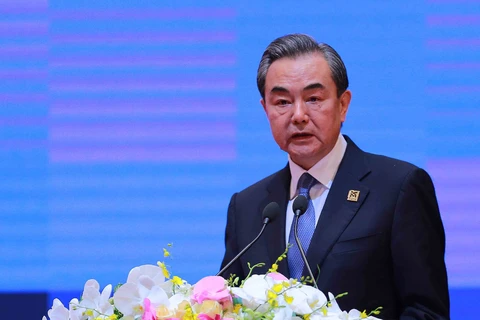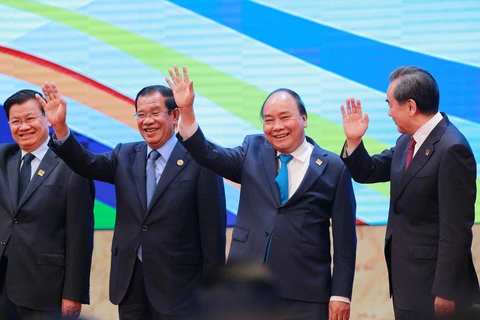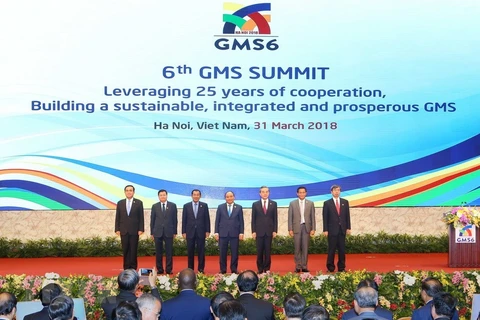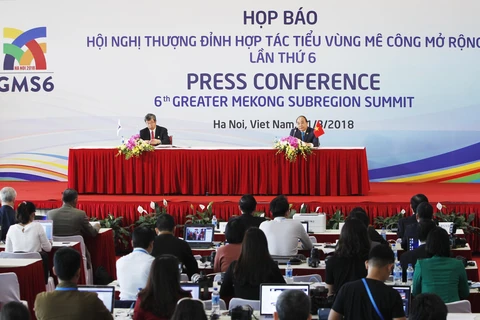Hanoi (VNA) – The Asian Development Bank (ADB) expects the economic growth of the Greater Mekong Subregion (GMS) will continue to expand in 2018, ADB President Takehiko Nakao said at the sixth GMS Summit in Hanoi on March 31.
Since its establishment in 1992, the GMS programme has brought tremendous benefits to the subregion, especially increasing connectivity and capacity in various fields, he added.
The economic growth of the GMS nations is impressive, and in 2018, ADB expects most of the GMS countries will be among the fastest growing economies in Asia-Pacific.
He said he has great optimistic view about the future continuous growth of the GMS countries, noting that some countries, including Vietnam, enjoying a growth of 7 percent, which is expected to double in the next 10 years.
GMS growth is based on the countries’ effective policies, open investment mechanism, and market-oriented reform.
ADB will continue supporting the GMS to build a subregional investment framework from now to 2022 with over 200 projects. The list of the projects will be updated regularly in the coming years, focusing on mitigation of climate change, agriculture, health care, human resources competitiveness, and urban development, he said.
The sixth GMS Summit took place in Hanoi on March 31, with the participation of leaders of the regional countries and representatives from ASEAN, the Asian Development Bank and the World Bank.
Themed “Leveraging on 25 years of Cooperation, and Building a Sustainable, Integrated, and Prosperous GMS”, the summit reviewed the 25-year path of GMS cooperation, and discussed opportunities and challenges the subregion is facing as well as major orientations for GMS cooperation in the coming time.
GMS was established in 1992 as an initiative of the Asian Development Bank. The GMS Programme is the most complete cooperation programme that involves Vietnam, Laos, Cambodia, Thailand, Myanmar, and China’s Yunnan and Guangxi provinces. Priority fields include infrastructure development, energy, telecommunications, tourism, trade-investment, human resources, and the environment.-VNA
VNA
























